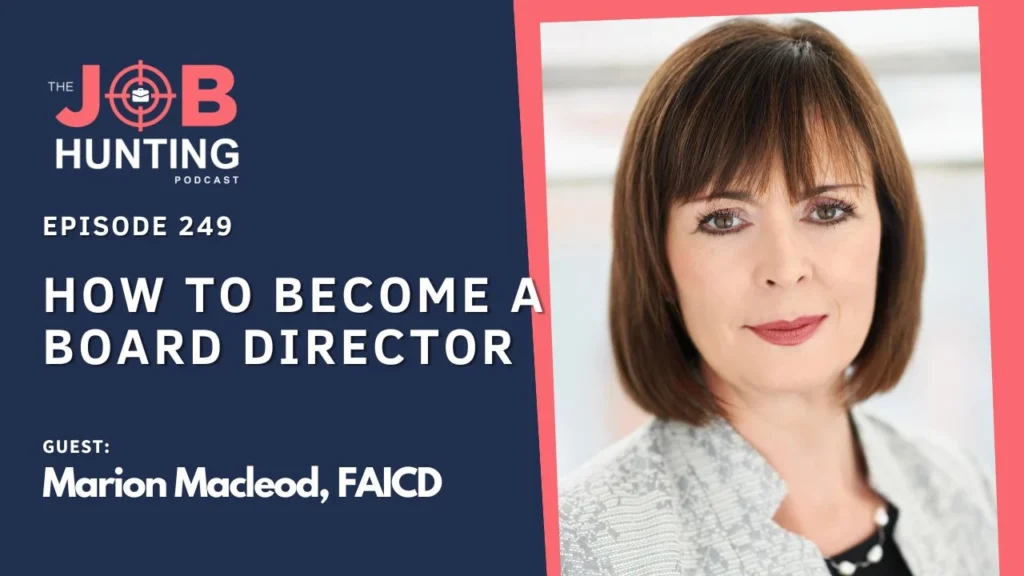In this special episode of The Job Hunting Podcast, we delve into an often aspirational but often mysterious career path: securing a board position. We are joined by Helga Svendsen, a governance expert and advocate for board diversity and accountability, to unlock the pathway to board roles for aspiring professionals.
In corporate leadership, few positions are as influential and integral as that of a board director. The guidance and oversight they offer set the strategic direction for entire organizations. But how does one embark on this leadership journey, especially if not at the twilight of their career? I recently had the privilege of speaking with board expert Helga Svenden to shed light on the topic.
Understanding Governance
Before diving into the “how,” it’s essential to grasp the “what.” What is governance? Helga elegantly unpacked this for us: governance is essentially the oversight and direction of an organization. A board’s core responsibilities encompass oversight, compliance, strategic direction, and decision-making. They stand as an external perspective, guiding and supporting the CEO and the executive team, offering insights those engrossed in daily operations might overlook.
But who makes a good board member? As Helga emphasized, diverse groups make better decisions. Diversity is not limited to age; it encompasses myriad experiences, skills, backgrounds, and insights. A board is more than just a collective of senior executives or retirees. It should represent a broad spectrum of perspectives.
How to Step onto the Board Pathway
For those keen on pursuing this path, Helga shared some invaluable advice:
- State Your Intentions: Admit to yourself that you want this, then communicate it to your network. Being open about your aspirations is the first step.
- Research and Learn: Board roles are increasingly advertised on platforms like Women on Boards, the Institute of Company Directors, and the Institute of Community Directors. Explore these listings and determine if you need specialized training.
- Network: While many board roles are now advertised, having connections in the board community can be invaluable. Such networks provide insights into the role expectations and can potentially lead to opportunities.
- Identify Your Unique Contribution: Understand the essence of what boards do, then introspectively identify what unique skills and perspectives you bring to the table.
Compensation and Starting Points
A common path to board directorship is starting with unpaid roles, often in nonprofits. Helga acknowledged this trend but emphasized that one’s motivation shouldn’t solely be compensation. Few board roles offer lavish paychecks, and those that do are fiercely competitive. Starting with unpaid roles can be an enlightening experience. Helga’s journey began this way, and she found it enriching. However, she urges individuals to prioritize passion and alignment with the organization’s mission over compensation. This ensures that the position is not just a stepping stone but a genuine contribution to the organization and personal growth.
There is More Advice for Future Board Directors on the Podcast
Board directorship is more than just a title or a paycheck; it’s a commitment to guiding an organization’s vision and ensuring its success. Helga’s insights serve as a valuable compass for those eager to embark on this journey, illuminating the path and emphasizing the importance of passion, preparedness, and diverse perspectives. Whether you’re mid-career or just starting, there’s a place for you in the boardroom. It’s time to carve out your unique path. So, don’t miss this chance to hear from a seasoned board member and governance consultant. Tune in to unlock actionable advice that could set the stage for the next big leap in your career.





